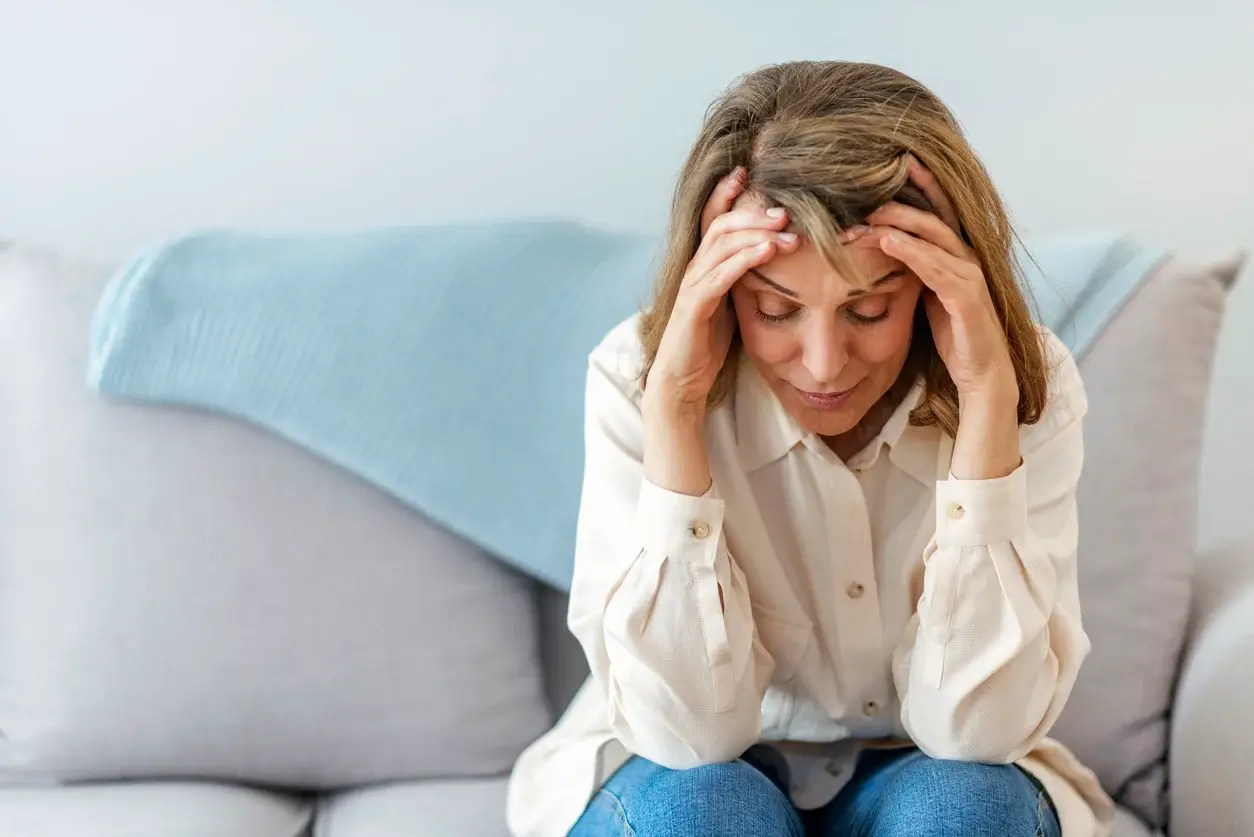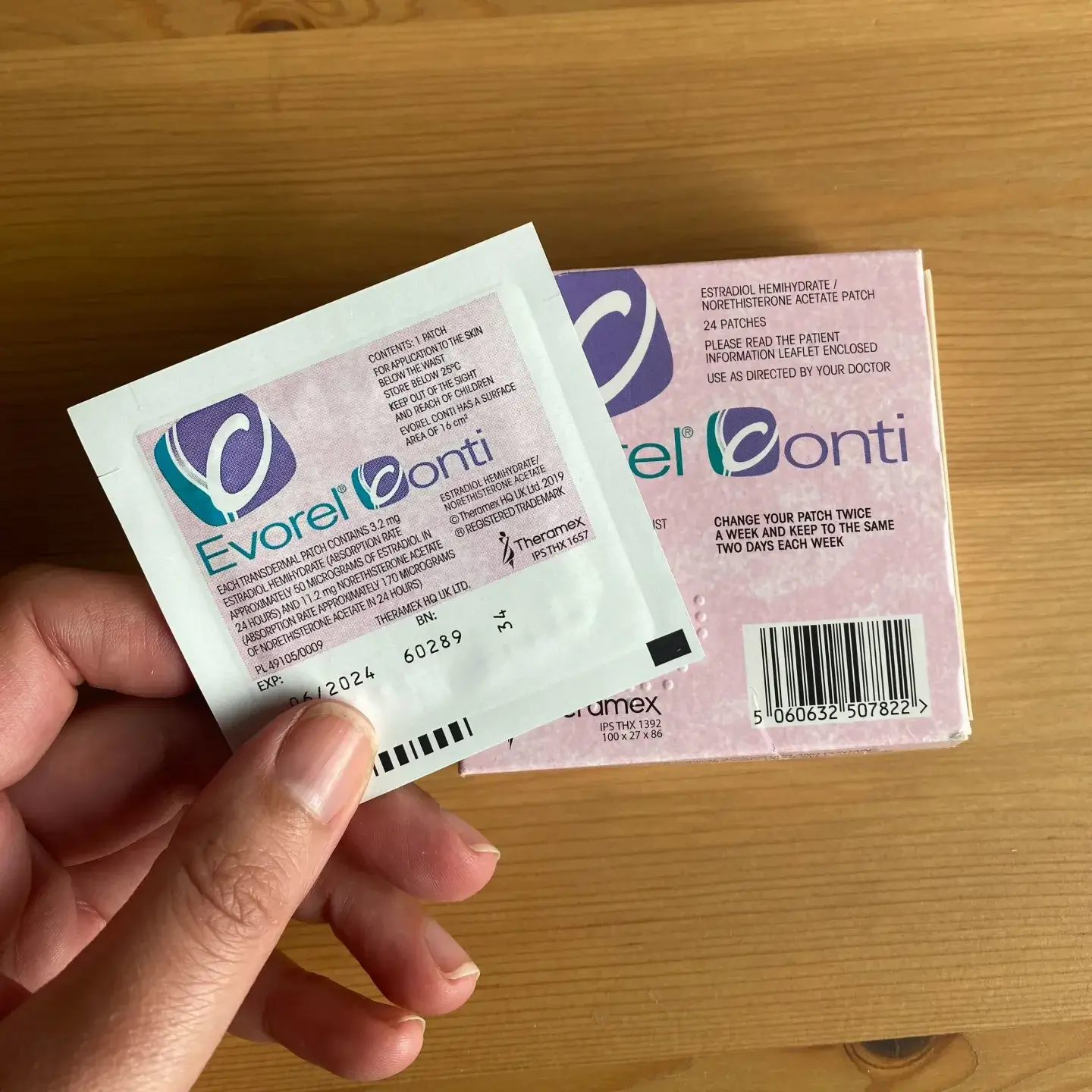4 mins read
Annys’ Menopause Story

My name is Annys and I’m around 10 years into my menopause journey. I’d say I’m still in menopause, maybe just past it – but it’s hard to tell because I haven’t been tested regularly.
When my journey started, I was having lots of horrible symptoms. When I went to my GP, she said, ‘oh yeah, that’s pre-menopausal’ and that was it. I left the appointment with no real information or support but because she didn’t seem too concerned, neither was I.
Symptoms made it hard to cope
Over the next couple of years, I muddled my way through. I suffered with brain fog, fatigue, and memory loss. Irritability was also a major symptom of mine.
It makes me feel stupid and I’ve found it hard to cope with finding and staying in employment. In May 2016, I had a panic attack at the hairdressers right before a big interview. I’d always struggled with anxiety but never to that extent. They were considering calling an ambulance because I couldn’t breathe – it was really frightening.
I went back to the doctors, and they ran some more tests. My hormones were all over the place, but they didn’t address any of that, they just put me on Citalopram (an SSRI) for my anxiety.
Back then, menopause wasn’t as widely spoken about as it is now. I didn’t even know what questions to ask the doctor because there wasn’t even enough information about it on the internet. I couldn’t seem to find any advice; I just didn’t know where to look.
The symptoms really creep up on you, so you don’t realise just how bad they are for a long time. Then suddenly, you don’t feel like you can cope anymore. I remember thinking ‘oh god how many times do I need to go back? You’re telling me that I’m fine but I’m clearly not’.
I was really irritable towards my partner during that time. He was asking me to seek professional help because I just wasn’t myself. I ended up going to a naturopath who recommended I take Sepia in a tablet form to help balance out my moods. It seemed to help a bit, but it was expensive and had to be prescribed by a medical professional to get the right dose.
Struggling to get support
After a short period of time, I went back to the doctor because I still wasn’t feeling great. Their recommendation was to up my Citalopram dose. But the drug didn’t sit well with me – I’d much prefer to go down a more natural, holistic route if I can.
I ended up coming off my Citalopram and felt dreadful. I couldn’t get off the sofa and didn’t want to – I’d think, is this depression? But when I looked at all my symptoms I could see that it was a vicious cycle.
Heard but no solutions
I ended up going back to the doctor in 2016 but this time I saw a very good female doctor. I felt she listened to me, but she was reluctant to prescribe HRT because she had been to a conference where it was critiqued negatively. She didn’t provide me with any information on the pros and cons, she just advised me against it.
She wouldn’t prescribe me testosterone either – but when I researched my symptoms, testosterone looked like it could help me. I wish I had advocated for myself, but I just didn’t know where to start.
I left without support once again, returning soon after because I was absolutely desperate and feeling so awful. She said I could try the patch but after four weeks I felt no different. The doctor then gave me some gel to use alongside the patch which made me feel horrendous. I stopped using the gel and continued using the patches because they haven’t given me any adverse reactions – but no real relief.
Lifestyle changes
I’ve always been interested in nutrition and think my healthy diet has helped with my symptoms slightly. My advice to anyone else entering perimenopause is to be really careful with what you eat and try to exercise as much as possible.
How Forth helped
I did take a thyroid test with Forth. I was relieved to find out I was within the normal parameters. After taking the test, I felt I could go to the doctor armed with the right information.
- Health scores calculated
Close
This information has been medically reviewed by Dr Thom Phillips
Thom works in NHS general practice and has a decade of experience working in both male and female elite sport. He has a background in exercise physiology and has published research into fatigue biomarkers.

Dr Thom Phillips
Head of Clinical Services
Related articles
Like this article? Here are some more based on similar topics.




